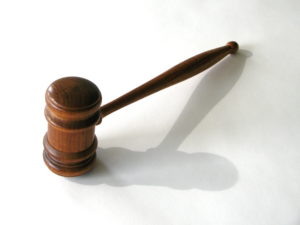Receiving Stolen Property
Receiving stolen property in Virginia (Va. Code §18.2-108) is a crime. It is committed by knowingly receiving stolen goods from another person or concealing stolen goods. Receiving stolen property in Virginia is a form of Larceny. It is charged as Petty Larceny or Grand Larceny, depending on the value of the items taken. If the value of the stolen property is less than $1,000, it is Petty Larceny (a misdemeanor). If the value of the stolen property is more than $1,000, it is Grand Larceny (a felony).
For more information on Petty Larceny in Virginia, click here.
For more information on Grand Larceny in Virginia, click here.
Proof of Receiving Stolen Property Charge in Virginia


Receiving Stolen Property in Virginia is a Crime and Can be Punished with up to 20 Years in Prison
To convict someone of a Receiving Stolen Property charge in Virginia under Va. Code §18.2-108, the Commonwealth must prove that the offender:
- bought, received or aided in concealing
- stolen goods
- from another person, AND
- knew the goods were stolen
Buys, Receives or Aids in Concealing: The Commonwealth must prove that the offender either bought, received, or concealed the goods in question. This requires proof that the offender had possession of the items (that he or she exerted dominion or control over the property). Proof that the offender tried to avoid being caught with the items can be sufficient for this element of the crime.
Stolen Goods: To convict someone of a Receiving Stolen Property charge in Virginia, the Commonwealth must also prove that the property in question was stolen. This requires that all of the elements of a Virginia Larceny charge be proven. For more information on how the Commonwealth proves the elements of a Virginia Larceny charge, click here.
From Another Person: An element of a Virginia Receiving Stolen Property charge is that the property was taken by someone other than the offender. This means that the Commonwealth must prove that the offender received the property from another person, and that person is the one who took the property. The Commonwealth does not need to convict another person of the theft of the items in order to convict someone of receiving stolen property.
Knew Items were Stolen: The Commonwealth must also prove that the offender knew the items were stolen when he or she bought, received, or concealed them. Knowledge can be proven with circumstantial evidence, such as the accused paying an extremely low purchase price for the items or attempting to hide the stolen items.
Penalty for Receiving Stolen Property in Virginia
If convicted of a charge of Receiving Stolen Property in Virginia, the offender will be punished based on the value of the goods stolen.
If the goods were valued at less than $1,000, the offense will be punished as a Petty Larceny. Petty Larceny in Virginia is taking an item, without consent, intending to permanently deprive the owner of his property. The item taken must be valued at less than $1,000. A Virginia Petty Larceny charge is a misdemeanor and is punished with up to 12 months in jail, a fine up to $2,500, and restitution.
If the property stolen was worth $1,000 or more, the offense will be punished as Grand Larceny. Grand Larceny in Virginia is the wrongful taking of an item worth more than $1,000 with the intent to permanently deprive an owner of his or her property. Grand Larceny in Virginia is punished with up to 20 years in prison and a fine up to $2,500.
Buying or receiving a firearm, knowing the firearm was stolen, or aiding in concealing the firearm, is a Class 6 felony (Va. Code §18.2-108.1), punished with up to 5 years in prison.





